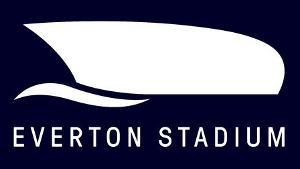Sir Frederick Ernest Gibberd CBE was an English architect, town planner and landscape designer. He is particularly known for his work in Harlow, Essex, and for the BISF house, a design for a prefabricated council house that was widely adopted in post-war Britain.

The Royal Liverpool University Hospital (RLUH) is a major teaching and research hospital located in the city of Liverpool, England. It is the largest and busiest hospital in Merseyside and Cheshire, and has the largest emergency department of its kind in the UK.

Belfast Harbour is a major maritime hub in Belfast, Northern Ireland, handling 67% of Northern Ireland's seaborne trade and about 25% of the maritime trade of the entire island of Ireland. It is a vital gateway for raw materials, exports and consumer goods, and is also Northern Ireland's leading logistics and distribution hub.

Carillion plc was a British multinational construction and facilities management services company headquartered in Wolverhampton in the United Kingdom, prior to its liquidation in January 2018.
Balfour Beatty plc is an international infrastructure group based in the United Kingdom with capabilities in construction services, support services and infrastructure investments. A constituent of the FTSE 250 Index, Balfour Beatty works across the UK, US and Hong Kong.

Costain Group plc is a British construction and engineering company headquartered in Maidenhead, England. Founded in 1865, its history includes extensive housebuilding and mining activities, but it later focused on civil engineering and commercial construction projects. It was part of the British/French consortium which constructed the Channel Tunnel at the end of the 1980s, and has been involved in Private Finance Initiative projects.

Laing O'Rourke is a multinational construction company headquartered in Dartford, England. It was founded in 1978 by Ray O'Rourke. It is the largest privately owned construction company in the United Kingdom.

Kier Group plc is a British construction, services and property group active in building and civil engineering, support services, and the Private Finance Initiative.

Sir Robert McAlpine Limited is a family-owned building and civil engineering company based in Hemel Hempstead, England. It carries out engineering and construction in the infrastructure, heritage, commercial, arena and stadium, healthcare, education and nuclear sectors.

Taylor Wimpey plc is one of the largest home construction companies in the United Kingdom.

Taylor Woodrow Construction, branded as Taylor Woodrow, is a UK-based civil engineering contractor and one of four operating divisions of Vinci Construction UK. The business was launched in 2011, combining civil engineering operations from the former Taylor Woodrow group and from Vinci UK - formerly Norwest Holst.
Galliford Try plc is a British construction company based in Uxbridge, England. It was created through a merger in 2000 of two businesses: Try Group, founded in 1908 in London, and Galliford, founded in 1916.

B&M European Value Retail S.A., trading as B&M, is a British multinational variety store chain founded in 1978 and incorporated in Luxembourg. It is listed on the London Stock Exchange, and is a constituent of the FTSE 100 Index.

The Liverpool Cruise Terminal is a 350-metre-long (1,150 ft) floating structure situated on the River Mersey enabling large cruise ships to visit without entering the enclosed dock system or berthing mid-river and tendering passengers ashore. The terminal was officially opened on 21 September 2007 by the Duke of Kent when the Queen Elizabeth 2 berthed at the terminal. The current terminal is composed mainly of a floating landing stage, with a small passenger terminal building, but a larger terminal is planned by the new operators Global Ports Holding.

Ryan McLaughlin is a Northern Irish footballer who last played as a right-back for League of Ireland Premier Division club St Patrick's Athletic. He has been capped five times by the Northern Ireland national team during his career.

Everton Stadium is a football stadium under construction on Bramley-Moore Dock in Vauxhall, Liverpool, England, that will become the home ground for Everton F.C. ahead of the 2025–26 season, replacing Goodison Park.

Arnold Clark is a car dealer based in Glasgow, Scotland. As of 2022, the company has 193 dealerships across the United Kingdom.
Bobby Arora is a British billionaire businessman, trading director of the retail chain B&M.

Van Elle is a piling and rail infrastructure company based in Nottinghamshire, between Pinxton and Kirkby-in-Ashfield, in the United Kingdom. It is listed on the sub market of the London Stock Exchange AIM.

The economic impact of the global COVID-19 pandemic on the United Kingdom has been largely disruptive. It has adversely affected travel, financial markets, employment, a number of industries, and shipping.
















